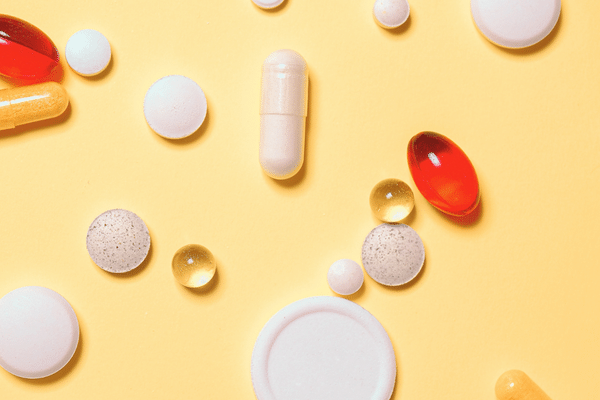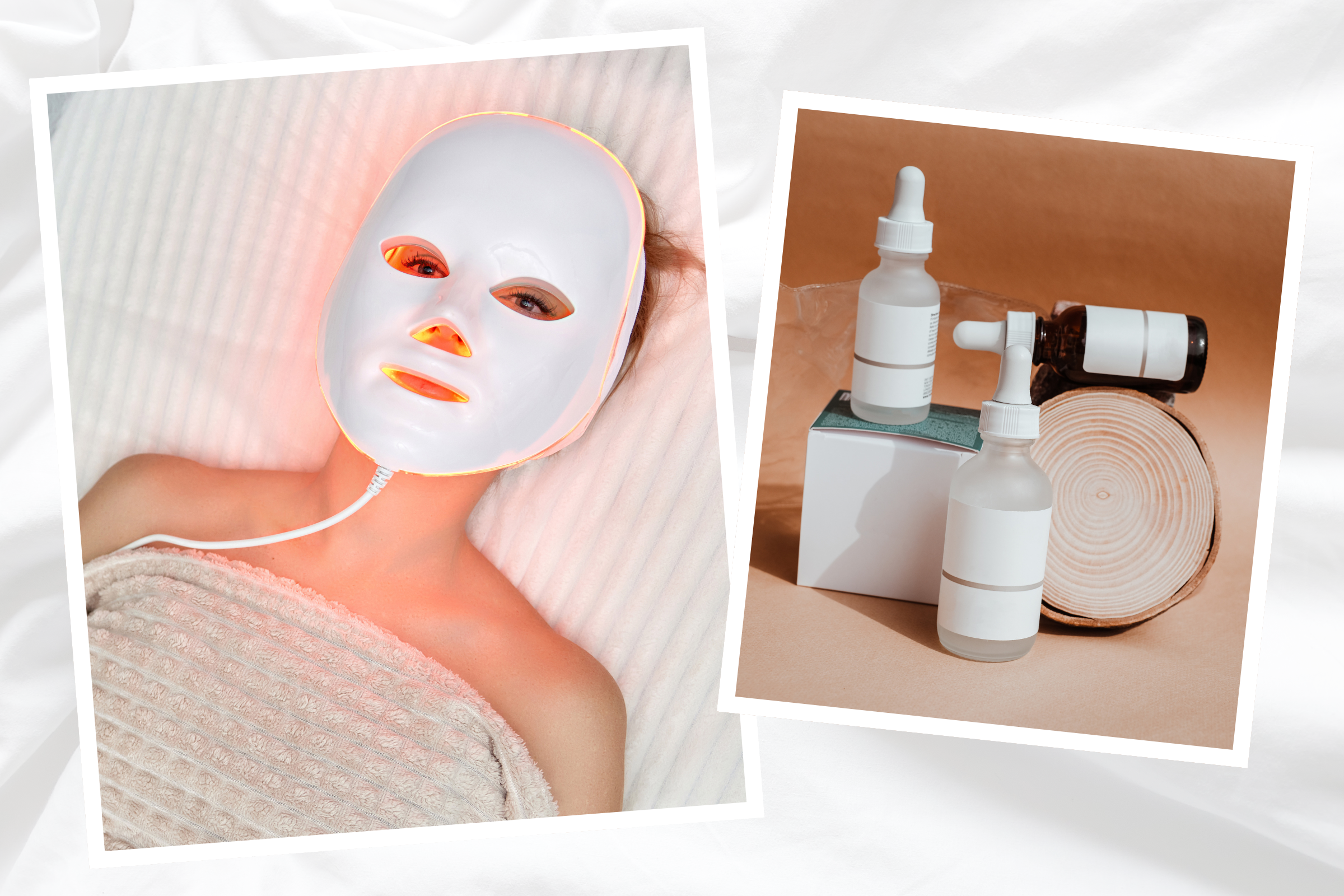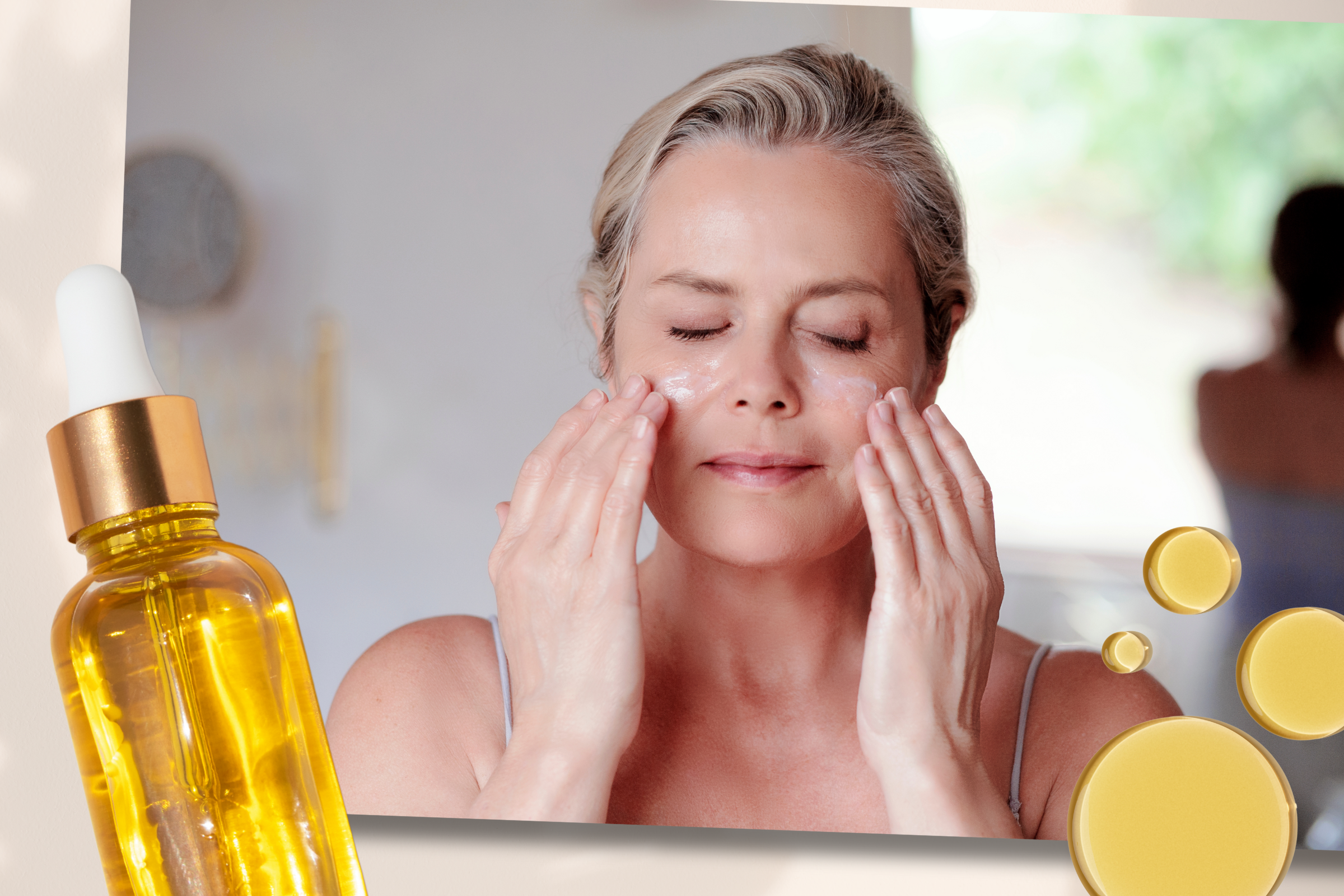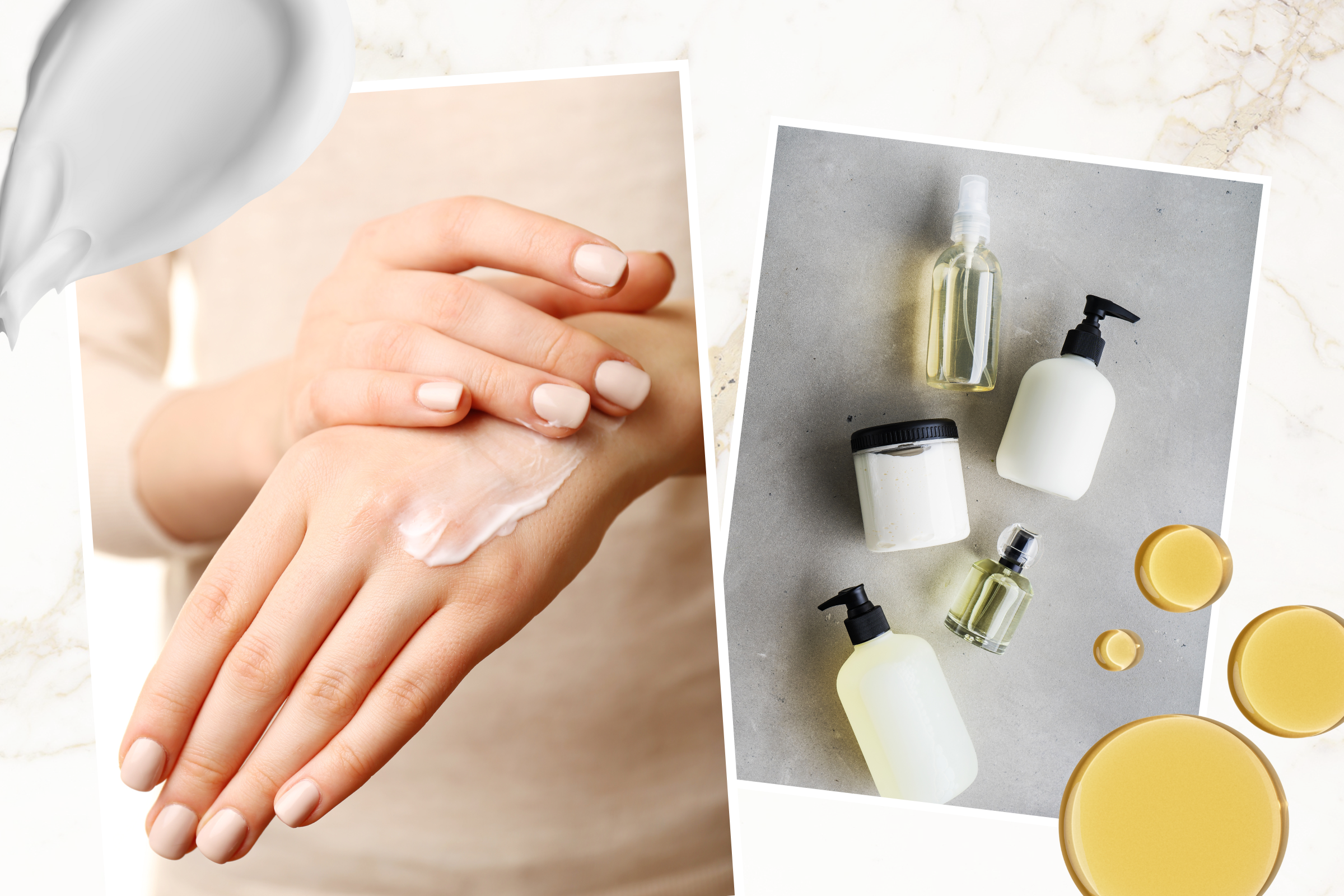Can supplements actually help our skin?

Are supplements the secret to great skin?
Nutritionist, Fiona Lawson, shares the science-backed ingredients to know about.
Can supplements help our skin?
Our diet affects how our skin looks and feels. We intuitively know this – and science supports the connection too. One large-scale observational study shows a relationship between women who consume more vitamin C and having plumper, more youthful-looking skin.
Another study shows that eating more colourful vegetables is associated with fewer crow’s feet wrinkles.
But, while a diet rich in all the good stuff is the foundation of glowing skin, there are certain skin-enhancing ingredients that are harder to find in our food. If you’re shopping for skincare supplements, here are the science-backed ingredients to know about.
The best supplements for healthy skin
The helpful hydrator
Most of us are familiar with hyaluronic acid because it’s a key ingredient in hydrating skincare. This gel-like substance is naturally present in our skin, where it helps cells hold onto water.
The problem is that our ability to produce it declines from our late twenties onwards, which means our skin loses moisture and volume. You can find hyaluronic acid in homemade bone broth, but you’re unlikely to consume a meaningful amount unless you drink a large volume of broth consistently.
Enter supplements. A randomised, double-blind, placebo-controlled trial (the gold standard) looked at people aged 35-64 and found that daily supplementation with hyaluronic acid significantly improved hydration and wrinkles in 12 weeks. This effect has been replicated in other studies too.
Research-backed dose: 120mg hyaluronic acid per day.
Find it in: Phyto Nectars I Am Radiant, £14.95
The collagen cure
Liz Earle explains why she supplements collagen for ageing skin and healthy joints:
“From our twenties onwards, our collagen levels fall and, as the years pass, this shows up as fine lines, skin wrinkling and stiffer joints. Collagen is the main structural protein in the body. It’s the building blocks of skin, as well as our joint cartilage. It’s even found in our bones, heart and gut lining.
“There are several different types of collagen on the market, but I favour those containing collagen peptides or hydrolysed collagen. It’s important to note that collagen in liquid and powder form won’t be absorbed intact – collagen molecules are broken down into their constituent amino acids in the stomach. That’s not to say they’re not helpful; amino acids can help to supplement the body’s ability to make its own collagen. But our ability to do this collagen-building reduces with age, so it’s not the most reliable approach, especially as we get older.
“I prefer collagen in a capsule clinically proven to withstand the intense acidity of the stomach, so it reaches the small intestine intact, where the pH changes and peptides are released. Look for brands using low-dalton-weight peptides (the smallest, best-absorbed kind). My favourite brand is Ingenious Beauty. When you start taking collagen, allow around a month before seeing the difference in your skin, followed by stronger nails and less painful joints. Over a period of months, you’ll notice stronger hair too.”
Find it in: Ingenious Beauty Ultimate Collagen, £48 (psst… use the code LIZLOVES for 15% off!)
Reduce inflammation
Astaxanthin is the red pigment that gives salmon and lobster their reddish colour and flamingo feathers their vibrantly pink hue. When you eat this carotenoid, it acts as a potent antioxidant, helping to protect your skin from UV damage and stimulating collagen production.
Fish and seafood such as salmon, rainbow trout, prawns and lobster are the best sources of astaxanthin. But the trouble is you’d need to eat a salmon fillet or a lobster every day to see a therapeutic effect, which isn’t realistic for most of us.
In a gold-standard trial with women aged 35–60, daily supplementation with astaxanthin decreased wrinkle formation and dialled down inflammation in the skin in 16 weeks. Researchers concluded that taking astaxanthin may help to delay skin ageing over the longer term.
Research-backed dose: 2-6mg astaxanthin/day
Find it in: Bare Biology Vim & Vigour Vegan Omega-3 Astaxanthin, £31.95
Skin smoother
Another common ingredient in skincare, CoQ10 is a vitamin-like substance involved in energy production and works as a powerful antioxidant. Like hyaluronic acid, our ability to make it ourselves diminishes as we age, contributing to fine lines and wrinkles.
You can find it in food, particularly meat and oily fish, though it’s hard to consume a therapeutic amount through food alone. You’d need to eat 31 mackerel fillets to hit the amount of CoQ10 used in supplement studies!
One gold-standard trial with women aged 45-60 found that daily supplementation with CoQ10 reduced visible signs of ageing and improved skin firmness and smoothness in 12 weeks. Interestingly, the researchers compared a lower and higher dose. Both doses improved crow’s feet wrinkles, but the higher dose helped with wrinkles around the mouth too.
Research-backed dose: 50-150mg CoQ10 per day
Find it in: BioCare MicroCell CoQ10 Plus Flaxseed, £36.63 (don’t forget to use LIZLOVES24 for 15% off)
Antioxidant aid
Pycnogenol is a standardised extract of French maritime pine bark. It’s rich in flavonoids and phenolic acids, which exert an antioxidant and anti-inflammatory effect in our bodies.
Although you wouldn’t want to dine on the bark, it’s possible to eat other foods rich in flavonoids and phenolic acids, such as colourful fruits and vegetables, nuts and teas.
However, there are benefits associated with consuming the exact polyphenol profile of standardised Pycnogenol.
In a clinical trial with healthy post-menopausal women, daily supplementation with Pycnogenol for 12 weeks dialled up the activity of genes involved in hyaluronic acid and collagen production. It also significantly improved the hydration and elasticity of the skin, especially in women who had drier skin to begin with. Pycnogenol may help with hyperpigmentation too, as another clinical trial found that daily Pycnogenol supplementation reduced melasma in 30 days.
Research-backed dose: 75mg Pycnogenol per day
Find it in: Pharma Nord Bio-Pycnogenol, £24.45
Do I need all of these supplements for better skin?
You don’t need to take all of these supplements, nor should you try.
Choose one, commit to taking it for three months, and see if it works for you. Before and after selfies can be helpful here. There’s no such thing as a magic pill – but like your favourite serum, you may find a supplement can become a useful tool in your anti-ageing box.
Disclaimer: If you’re pregnant, breastfeeding, on any medication or have a health condition, you must consult your doctor before starting any new supplements.
Fiona Lawson is a registered associate nutritionist, peer-reviewed author and skin nutrition specialist. Find her on YouTube @fionalawsonnutrition.
Read more features like this
- 8 of the best ceramide products for happy, hydrated skin
- Should you try skin cycling in midlife? Here’s what the experts think
Please note, on some occasions, we earn revenue if you click the links and buy the products, but we never allow this to bias our coverage and always honestly review. For more information please read our Affiliate Policy.




